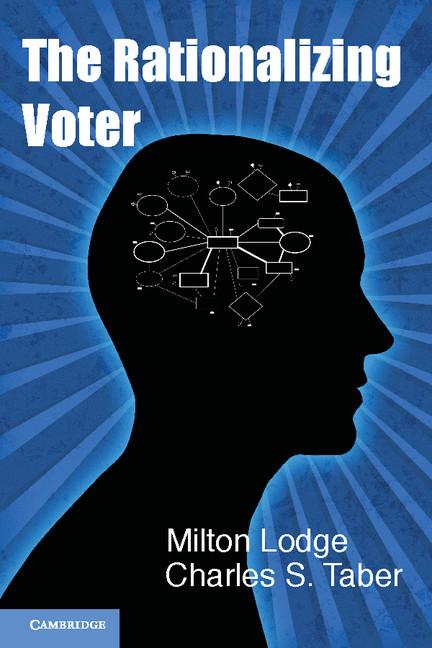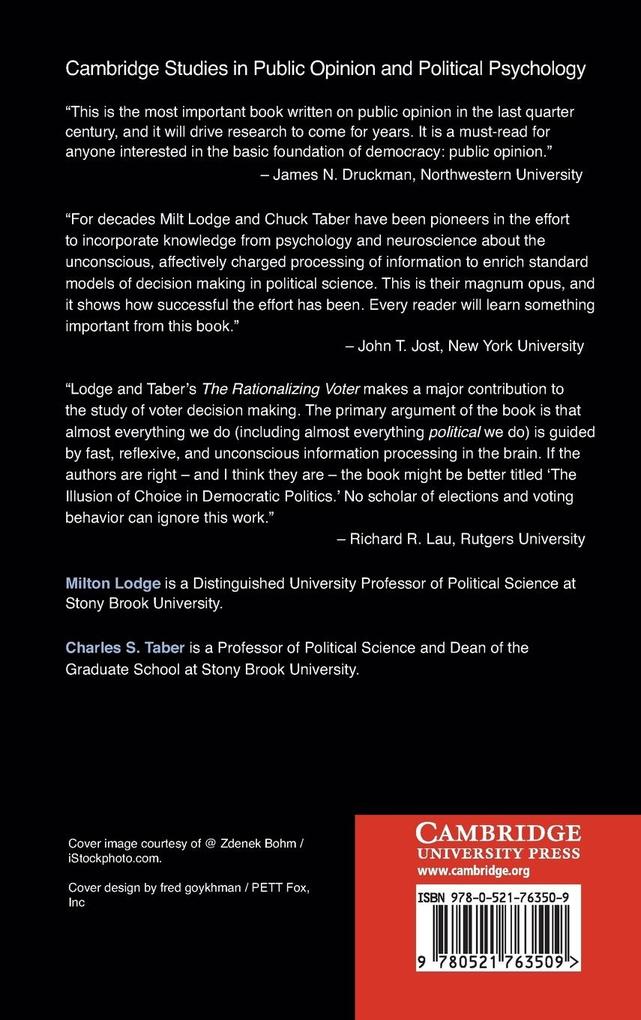
Zustellung: Fr, 23.05. - Di, 27.05.
Versand in 1-2 Wochen
VersandkostenfreiBestellen & in Filiale abholen:
When citizens think about political leaders, groups and issues, their feelings bias how information is encoded, evaluated and acted upon.
Inhaltsverzeichnis
1. Unconscious thinking on political judgment, reasoning, and behavior; 2. The John Q. Public model of political information processing; 3. Experimental tests of automatic hot cognition; 4. Implicit identifications in political information processing; 5. Affect transfer and the evaluation of political candidates; 6. Affective contagion and political thinking; 7. Motivated political reasoning; 8. A computational model of the citizen as motivated reasoner; 9. Affect, cognition, emotion: which way the causal arrow?
Produktdetails
Erscheinungsdatum
01. April 2013
Sprache
englisch
Seitenanzahl
300
Autor/Autorin
Milton Lodge, Charles S. Taber
Verlag/Hersteller
Produktart
gebunden
Gewicht
640 g
Größe (L/B/H)
235/157/22 mm
ISBN
9780521763509
Entdecken Sie mehr
Pressestimmen
"This is the most important book written on public opinion in the last quarter century, and it will drive research to come for years. It is a must-read for anyone interested in the basic foundation of democracy: public opinion." - James N. Druckman, Northwestern University "For decades Milt Lodge and Chuck Taber have been pioneers in the effort to incorporate knowledge from psychology and neuroscience about the unconscious, affectively charged processing of information to enrich standard models of decision making in political science. This is their magnum opus, and it shows how successful the effort has been. Every reader will learn something important from this book." - John T. Jost, New York University "Lodge and Taber's The Rationalizing Voter makes a major contribution to the study of voter decision making. The primary argument of the book is that almost everything we do (including almost everything political we do) is guided by fast, reflexive, and unconscious information processing in the brain. If the authors are right - and I think they are - the book might be better titled 'The Illusion of Choice in Democratic Politics.' No scholar of elections and voting behavior can ignore this work." - Richard R. Lau, Rutgers University
Bewertungen
0 Bewertungen
Es wurden noch keine Bewertungen abgegeben. Schreiben Sie die erste Bewertung zu "The Rationalizing Voter" und helfen Sie damit anderen bei der Kaufentscheidung.











